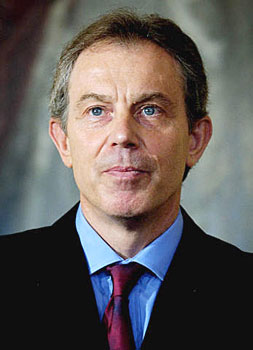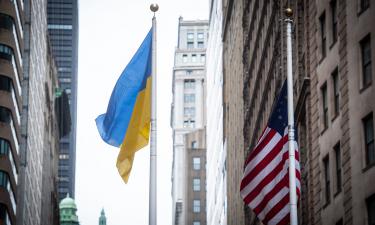Tony Blair visits Iraq to support new prime minister
Prime Minister Tony Blair flew into Baghdad on Monday to lend his support to the new Iraqi leadership as it begins the task of trying to restore security and stem the slide toward civil war.

Blair, who arrived by helicopter in the fortified Green Zone, met with his Iraqi counterpart Nouri al-Maliki at the prime minister's office in marble building in central Baghdad. The two greeted each other on a red carpet with brief formalities before entering a closed-door meeting.
The two were expected to hold a joint news conference later Monday.
Blair, the first world leader to visit Iraq since its new government was inaugurated Saturday, said last weekend that coalition soldiers hope to transfer their duties to Iraqis as soon as possible, but that British troops would remain here for as long as they are needed.
But Blair, whose country about 8,000 service members in Iraq, also said that al-Maliki has told the coalition that he wants to see Iraq in control of its own destiny.
"Iraq now has a democratically-elected government which is there for a four-year term, is made up of all the different groupings within Iraq and it is very much dictating the agenda," Blair's official spokesman said on the customary condition of anonymity. "We are here to show our support for that democratic government and to help it take charge of its own destiny."
A senior British official traveling with Blair said the withdrawal of the present multinational force should be accomplished within four years, with a handover to civilian control in several provinces during the summer.
He stressed that was not a timetable for troop withdrawal, and was not necessarily heralding the swift repatriation of large numbers of British troops.
Like U.S. President George W. Bush, who has a 132,000-strong military contingent in Iraq, Blair has seen his public support fall at home because of opposition to the Iraq war.
Blair, who has served as Britain's prime minister since 1997, has said he will not compete in his country's next general election slated for 2010, but some members of his own Labour Party recently urged him to set a timetable for his departure now.
Earlier this month, Labour suffered a big setback in local council elections in Britain, winning 26 percent of the vote compared to the 40 percent for the opposition Conservative Party, and anti-war sentiment in Britain appeared to be one reason for the poor showing.
Stung by the election defeat, Blair shuffled his Cabinet and fired Foreign Secretary Jack Straw, who had expressed doubts about the Iraq war to his boss.
Britons also were shocked to see that when a British military helicopter crashed in the southern city of Basra on May 6, jubilant Iraqis pelted British troops with stones, hurled firebombs and shouted slogans in support of a radical Shiite Muslim cleric, reports the AP.
I.L.
Subscribe to Pravda.Ru Telegram channel, Facebook, RSS!





